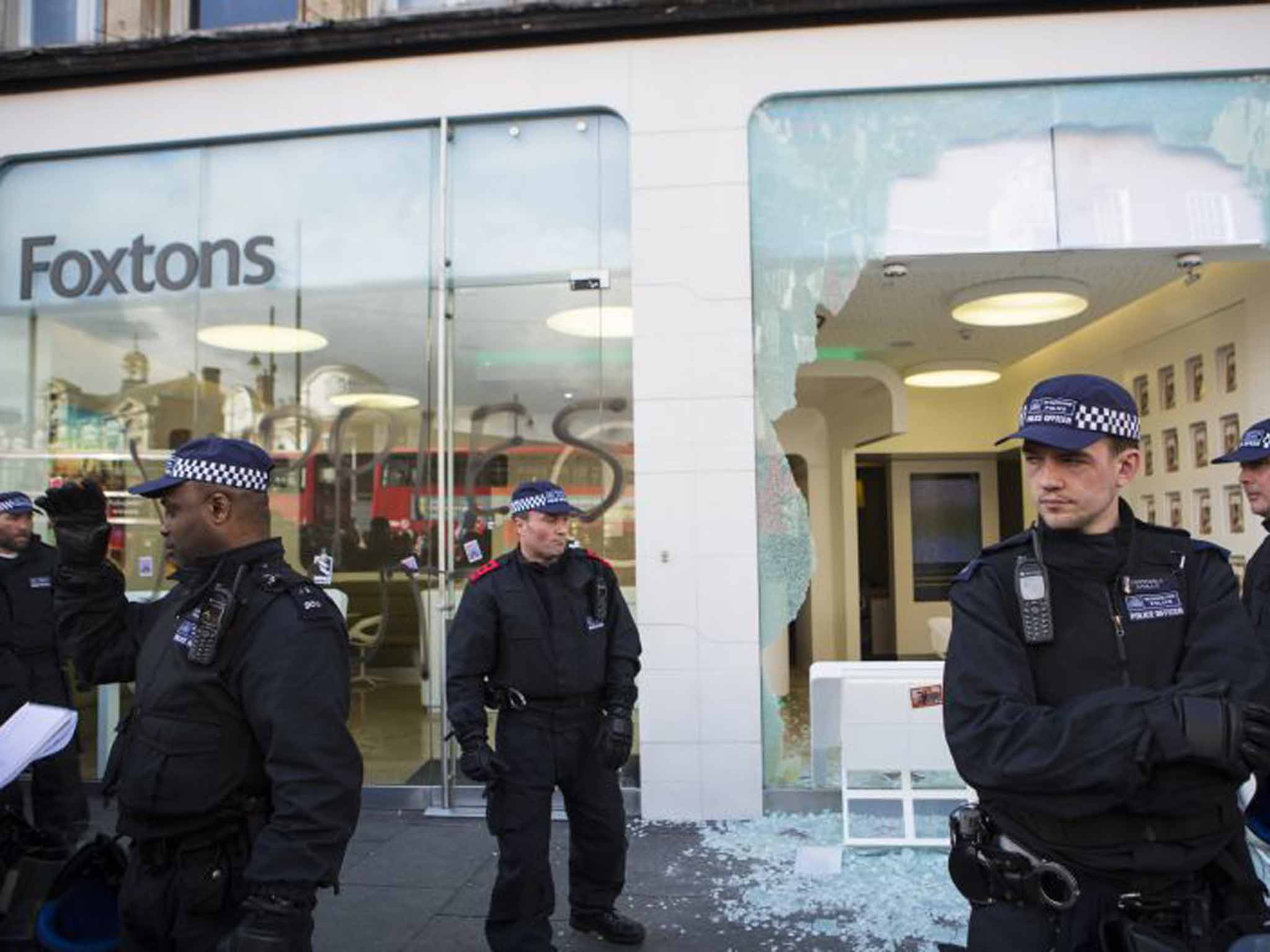Foxtons: A perfect metaphor for how society continues to change for the worse
To some people, Foxtons represents all that's wrong with the property market. As a new legal claim is filed against it, Mira Bar-Hillel asks if the company deserves our ire

Your support helps us to tell the story
From reproductive rights to climate change to Big Tech, The Independent is on the ground when the story is developing. Whether it's investigating the financials of Elon Musk's pro-Trump PAC or producing our latest documentary, 'The A Word', which shines a light on the American women fighting for reproductive rights, we know how important it is to parse out the facts from the messaging.
At such a critical moment in US history, we need reporters on the ground. Your donation allows us to keep sending journalists to speak to both sides of the story.
The Independent is trusted by Americans across the entire political spectrum. And unlike many other quality news outlets, we choose not to lock Americans out of our reporting and analysis with paywalls. We believe quality journalism should be available to everyone, paid for by those who can afford it.
Your support makes all the difference.As you sow, so shall you reap. (Maybe.) This is of a course a ludicrously righteous sentiment to apply to an estate agent, but in the case of Foxtons, the cap seems to fit.
I tend to divide the history of estate agency in England between BF (before Foxtons) and AFH (anno Foxtons horribilis). BF there was some decency, some trust between seller, buyer and agents and a sense of common purpose in achieving a sale as painlessly as possible. Much business was done on a handshake. Gazumping and its ugly sister gazundering were rare and frowned upon. House sales were not almost as traumatic as bereavements.
At the risk of sounding pompous, I believe the success of Foxtons is a perfect metaphor for how society continues to change for the worse. In the words of a rival agent, struggling to maintain standards: "The UK public seem to prefer a flashy image and a smooth pitch to personal integrity and attentive service."
Founded by Jon Hunt in 1981 in Notting Hill, west London, Foxtons high visibility began in 2001, with the eyecatching launch of a fleet of branded Minis for its employees. But while the stylish logo and famous vehicles made people perceive it as "reputable", its conduct has often suggested the opposite. In March 2006, BBC reporters working undercover revealed employees faking signatures on legal documents – including passports – systematically overvaluing properties and sharing private financial information on buyers with an "independent" mortgage broker it controlled.
The day after the broadcast, Foxtons branches were reported to be deserted amid talk of the discredited brand collapsing. But then a strange thing happened. Within days, Foxtons offices were busier than ever, besieged by new customers who had not dealt with them before.
Why? Because the bottom line of the message they received was not that Foxtons was a rogue company to be avoided. No – it was the tough, flashy guy who would get you the highest price for your house. There is, of course, no evidence to support this, but it has struck a chord with the Great British Public, which I trace back to Flashman, the cowardly school bully from the Tom Brown books.
Foxtons never looked back. Needless to say, it seems hardly to have improved its bullying ways with buyers, sellers and not least its own browbeaten staff, who were spied on, set against each other and ritually humiliated if they failed to "perform". One former employee, who asked to remain anonymous, recalls a red flashing light on the sales floor that would go off when someone made a deal, with a voiceover blaring "show me the money, show me the money". However, far from becoming a pariah within the agency world, Foxtons became an aspirational role model. The year after the BBC exposé, the canny Jon Hunt, on whose, er, "ethos", the business was built, capitalised on naked greed by selling Foxtons to a private equity firm for a staggering £390m. But it was now 2007 and before long the property market collapsed, taking agents' profits with it.
Recently, Foxtons' activities have been extended by Generation Rent so that the agency now acts for landlords and tenants, all of whom are seen as grist to the money-making mill. In May 2013, the BBC's Watchdog reported on Foxtons' draconian tenancy agreements, which appear designed to maximise profits. In that year, Dr Chris Townley received a bill of £616 to change a single light fitting in the property he was letting. He discovered that the sum was made up of a relatively modest installation cost – and a whole raft of commissions, fees and commissions on fees, all trousered by Foxtons.
The law lecturer (oh the irony!) was photographed holding a two-page Foxtons letting agreement made up entirely of small print. Dr Townley is now hoping to sue Foxtons, but the firm is convinced it will win on the small print and I am not convinced that it won't.
Good luck, Doc – you're up against Flashman, so you'll need it.
Join our commenting forum
Join thought-provoking conversations, follow other Independent readers and see their replies
Comments